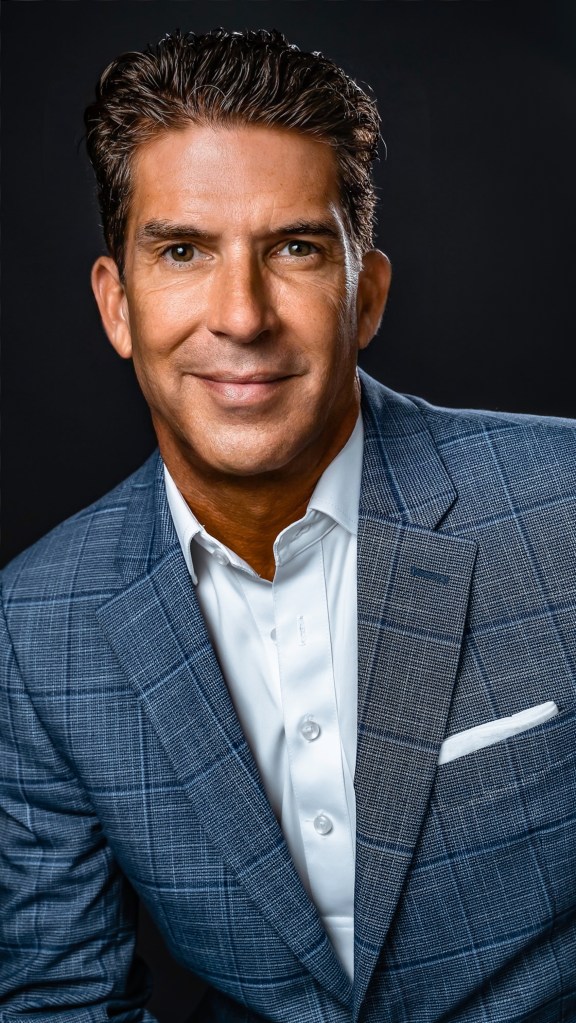Chris Bruser, a reverse mortgage professional in Florida, agreed with an assertion that most people do not dream of entering the reverse mortgage business when they’re kids. But success can have a major impact on young people when they’re exposed to what it can look like, and this much was true for Bruser as a teenager when he worked at a country club as a golf caddy.
These early interactions with successful financial services professionals and attorneys would wind up being instrumental in his choice of career, eventually leading Bruser to the reverse mortgage business. In a recent interview with HousingWire’s Reverse Mortgage Daily (RMD), the Mutual of Omaha Mortgage professional recounts his entrance into the industry for the newest edition of RMD’s feature series, “Origins.”
Key influences
Bruser describes his life and family growing up as steeped in the American middle class. His job as a caddy at a local country club put him in direct contact with professionals who had a notable impact on him and, ultimately, on what he wanted to do.
“I caddied for attorneys and financial advisers,” he said. “I saw these guys being very professional, and I caddied for a guy who was a financial adviser. I just gravitated toward this guy. He taught me about being a financial adviser, so my dream was to be a financial adviser. I wanted to be a stockbroker.”
In 1987, the Oliver Stone-directed film “Wall Street“ was released and further enamored Bruser with the stock market. He wasted little time and joined Dean Witter Reynolds while he was still a college undergraduate, becoming a financial adviser and stockbroker.
The company sent its trainees to the World Trade Center in New York for eight weeks of training. Prior to embarking on that trip, he was advised by his superiors that trainees needed to have a well-developed plan for potential cold-call subjects with clients.
This proved to be a pivotal moment for Bruser’s career, since this exercise is what first led him to interact with older clients.
Entering the mortgage space
Bruser knew he wanted to try and stand out from his peers, so he started thinking about what he could do to proceed in the business sustainably while not necessarily doing the same thing as others.
“Most people back then thought of stocks,” Bruser said. “I didn’t want to be that kind of stock jockey, so I thought, ‘What’s the most conservative thing I can call people about that’s not going to hurt anybody?’ I learned about tax-free municipal bonds, which is an income-producing investment for retirees.”
 Chris Bruser
Chris BruserWhen he returned from New York, he began calling retirees about these bonds, which is what first led him to work directly with seniors on their financial matters.
“It’s the same demographic [I’m working with] now, but I began my career in 1992 working with retirees, generating retirement income,” he said. “I did that until about 2003, so about 11 years. I just got tired of the roller coaster of the stock market.”
At that point, some friends introduced Bruser to the mortgage industry.
“‘Come work for us,’” he recalls them saying. “‘We’ll teach you the mortgage business. You’ll make a killing and you don’t have to wear Brooks Brothers suits anymore.’”
One of the appealing things about the mortgage industry was that it had a more finite timeline. While working with stocks and bonds, Bruser found that he was often seen as either a “good guy” or a “bad guy” depending on the whims of the market.
With mortgages, however, there was an endpoint that would continue to allow him to work in finance. In 2003, he began working as a mortgage professional, and he found his way into the reverse channel two years later.
Shifting into reverse
At a 2005 lunch and learn, a reverse mortgage professional with Financial Freedom laid out what reverse mortgages were, who they’re for and what they can do. Bruser said it was during this event that a “lightbulb” went off in his head.
“I thought I knew what they were, but I really didn’t,” he said. “I wanted to learn about them. I quickly realized that this is a financial planning tool. People were asking me questions about reverse mortgages, which is why I wanted to learn. I realized it’s a mortgage, but people are doing it for financial planning reasons.”
The intersection between the mortgage business and his previous work in helping older people set up cash flow in retirement was immediately clear to him, he said. It didn’t take long for the utility of the product to assert itself when he decided this was a path he wanted to explore.
He knew that financial advisers likely had many of the same misconceptions about the product that he did, and he knew he wanted to tell more planners about it using accurate information.
“How Financial Freedom taught you to do the business back then was to do seminars,” Bruser said. “So, we spent $10,000 on invitations and did seminars in high-concentration senior areas right over here in St. Petersburg. I’m in Tampa, but my buddies had an office in St. Pete, where there’s a higher concentration of seniors. We started doing seminars and the interest was amazing.”
At his very first seminar in 2006, Bruser immediately met a reverse mortgage client.
“I’m 5’8″, so she was maybe five feet tall,” Bruser said. “She thanked me, and said her son and she had been talking about reverse mortgages, and he recommended she come to the seminar. After hearing what she’d heard, she wanted to move ahead with a reverse mortgage and with me.”
Her name was Olivia, and she felt the impact of the loan immediately, describing for Bruser how it would free up her finances at the closing table, he said.
“This is it,” he remembers saying to himself. “If I can make this kind of impact on people, just like my own parents or grandparents, and still work in the financial services area, that’s what I’m going to do.”
Olivia was also invited to Bruser’s wedding not long afterward. He continues to keep a photo of himself, his groomsmen and Olivia in the limousine on the way to the wedding.












 English (US) ·
English (US) ·